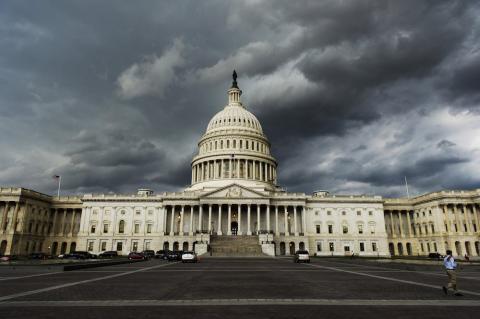It's one of the most bizarre and troubling news stories about Congress in 2017:
A family of rogue congressional IT staffers got paid millions of dollars for mostly no-show, no-performance jobs by over 20 House members, many of them on sensitive House committees.
A criminal investigation by Capitol Police is looking into the staffers' activities. These staffers had access to members' email accounts, and are suspected of illegally sending sensitive congressional data off the secure House computer networks.
The Capitol Hill Police chief was threatened, on the record, by the staffers' personal friend and primary employer, US Rep. Debbie Wasserman Schultz, over the department's retention of a computer the staffers used. The police chief explained that the computer was being used as evidence for the investigation.
If these five staffers -- three Pakistani brothers and two of their wives -- were getting paid millions of dollars by House members (far in excess of the average Capitol Hill staffer salary) to do very little to nothing, as it has emerged, then the obvious and nagging question is:
What were these staffers really getting paid for?
When Politico first reported that five US House employees were under criminal investigation for allegations they “committed serious, potentially illegal, violations of House IT policies," why did Wasserman Schultz keep them on the payroll through the entire first quarter? Especially after most members fired them on February 2 or 3 just before the story broke?
And why is Congress STILL so quiet about this?
Why haven't any arrests been made when one of the staffers fled the country to Pakistan while under a criminal investigation by police?
The story is so compelling in the number of disconcerting questions it raises that the biggest question of all is what is wrong with the state of journalism today that the mainstream media will not give this story a single pixel of acknowledgement in its wall-to-wall, 24-hour coverage?
A search on CNN.com for "Imran Awan," the name of the ringleader of this mysterious and shady family, will turn up exactly one result as of the time this article was published, and it is for an unrelated British person of the same name who wrote an opinion piece for CNN in 2014.
A Google query for "imran awan site:cnn.com" returns the same result.
By contrast, a search on CNN.com for "russian hackers" will return pages upon pages of results for stories about the hitherto fruitless quest to find a smoking gun implicating President Donald Trump in an act of colluding with a foreign government to win the presidential election.
Holding the president up to scrutiny is an important function of the media. Holding Congress up to scrutiny is as well.
So then, why haven't mainstream media outlets turned our attention to the possibility that members of Congress are being blackmailed for millions of dollars with their own data?
Why haven't they used an ounce of their enormous resources to investigate these pressing questions?
Similar to CNN, a query of "imran awan" on MSNBC.com also returns no results.
A query on HuffingtonPost.com returns just one result back in February, a syndicated Reuters report on the story.
Searching NBCNews.com, USAToday.com, USNews.com, NPR.org, and a number of other mainstream outlets reveals the same blackout of coverage on this story.
Yet CNN has plenty of space this week to report about a photo of Trump in a prayer circle (it's not news that presidents meet with church leaders), Gangnam Style's YouTube views, and why some journalist is breaking up with Twitter among other inanities.
So instead of calling your congressman in small numbers to get the standard reply, "Thank you for calling. Sure, I'll pass it along to the congressman," when most Americans are not even aware that this investigation is happening in Congress, there may be just enough people who are aware of it to get one media outlet's attention and demand they inform their audience and stop filtering relevant news.
Next week we'll look at who these 20 House members are and attempt to get reaction from some of them.
